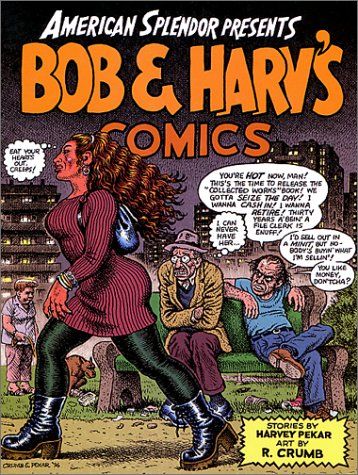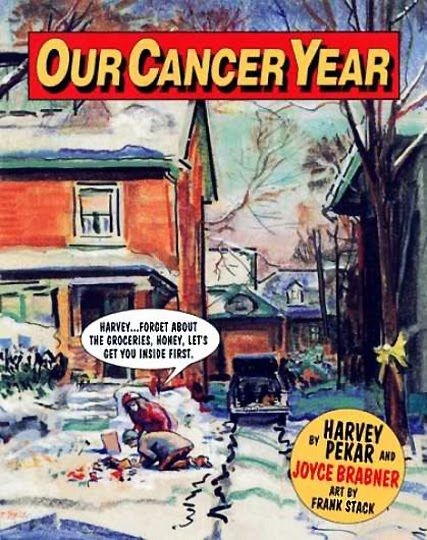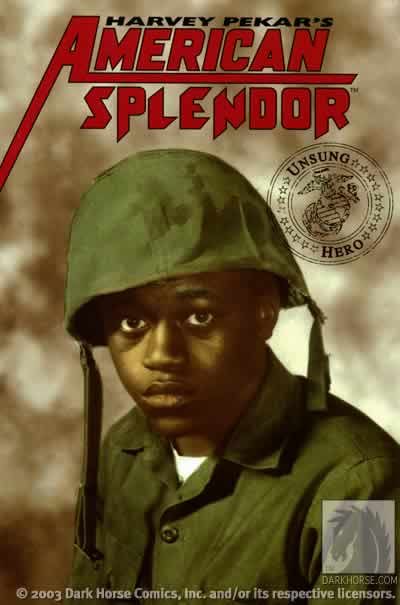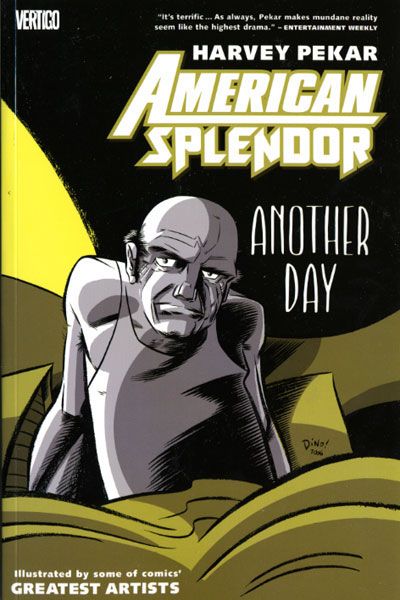Comics College is a monthly feature where we provide an introductory guide to some of the comics medium’s most important auteurs and offer our best educated suggestions on how to become familiar with their body of work.
This month we're paying homage to a writer who left us a little too recently and too soon, the late, great Harvey Pekar.
Why he's important
In a time when no one -- apart from maybe a select few underground artists like Aline Kominsky-Crumb -- was attempting to use comics to tell stories about everyday life, Pekar had an epiphany. By adapting into comics (with the help of an ever-expanding cadre of artists) his daily thoughts and experiences, as well as those of his friends and co-workers, he pushed people to look beyond their prejudices and preconceptions about the comic-book medium and think about its potential instead.
What's more, he was a gifted writer, with a wonderful ear for people's cadences and behavior. His self-awareness and probing honesty made incredibly minor incidents -- making lemonade, a trip to the grocery store -- fascinating and entertaining. Pekar wasn't great because he focused on minutiae. He was great because in examining minutiae he found truths and emotions that most of us are in too much of a hurry to pay attention to.
Where to start
You have a couple of options here. My first suggestion would be to go with the American Splendor movie tie-in book (the one with Paul Giamatti on the cover, above). This collects the first two Ballentine anthologies from his comic book series and contains most of his best work, including "The Harvey Pekar Name Story," "Alice Quinn," "Hypothetical Quandary" and "A Ride Home." This is pretty much the pure, unadulterated source.
On the other hand, if you want a slimmer, more distilled reading experience, you could start with Bob an Harv's Comics, which only collects the stories Pekar did with Robert Crumb. Crumb was one of Pekar's best -- if not the best -- interpreters, and the two had a rapport that made for one of the best collaborations in the history of comics.
Continuing along the "greatest hits" thread, there is also apparently a Best of American Splendor collection, though I haven't had an opportunity to track down a copy yet. My understanding is it only collects stories from the 1990s and onward, which may not make it the best pick for a first-timer, but if there's an intrepid reader out there who can enlighten me of its value in the comments section, please feel free.
From there you should read
The New American Splendor Anthology is another solid anthology culled from Pekar's series, and features some great collaborations, including an inspired (and kinda loopy) one with Chester Brown. This is also where he delves into his appearances on the David Letterman show, for those who are curious to hear about that.
After American Splendor and Letterman, Pekar is best known for Our Cancer Year, in which he and his wife, Joyce Brabner, chronicled his first bout with Lymphoma (his cancer returned later in his life). Ably and strikingly illustrated by Frank Stack (author of The New Adventures of Jesus), it's a pretty stark look at what a draining, tense experience it is to be seriously ill in modern America. The book takes a while to get going (there's a lot of stuff about Brabner's peace activism work and her relationship with some teen refugees that honestly could have used some trimming), but once it does, it makes for a compelling read. There's been a number of graphic novels about cancer and terminal illness in the ensuing years, but this remains the best of the bunch.
Further reading
In the mid-90s Pekar joined up with Dark Horse and published a bunch of American Splendor comics through them. The most notable of the bunch are Unsung Hero, which tells the story of Vietnam vet Robert McNeill (with art by David Collier), and Music Comics, which, as the title suggests, culls a number of jazz-themed strips Pekar did with Joe Sacco (jazz being Pekar's other big love of his life). All of the Dark Horse books are pretty good though, and they're easily available through the publisher's Web site.
The Quitter, Pekar's memoir of his youth and early adulthood, had it's share of detractors when it first came out, but I'm a fan of the book. Pekar writes with insight and pathos about his years as a street fighter and how his fear of success made him constantly give up every opportunity that came his way. Plus, the book features some of artist Dean Haspiel's best work to date.
Not one to ever rest on his laurels, Pekar kept working right up until the end. One of his last works was The Pekar Project, an ongoing Webcomic hosted by Smith magazine. It's not all gold, but there are a few gems tucked away in the archive, like Muncie, Indiana.
Ancillary material
While it cuts perhaps a little too cute a portrait in the end, the American Splendor movie is probably about as honest and true an adaptation of Pekar and his work as anyone is ever going to get. At the very least, it has the common sense not to try a straightforward biography and mixes its docudrama with interviews from the real Pekar and Brabner. Plus, it's a good entry point for those who aren't in the mood to, well, read.
Tying into the film, Ballentine released American Splendor: Our Movie Year, which is little more than a loose collection of strips about making the film, doing the press junket and just general odd things that happened during the same time period, as well as some biographical sketches done for various magazines. It's a mixed bag at best, and while there's some good material here, it's not one of the stronger collections.
After the success of The Quitter, Pekar did two American Spendor mini-series for Vertigo, collected in paperback as Another Day and Another Dollar. The idea was to pair Pekar up with some unexpected, more genre-based artists in addition to his more traditional collaborators and see what happens. While there are some amazing surprises (who knew Richard Corben could portray Pekar's milieu so convincingly?) there's also a lot of "meh" material as well and the end result is another one of those mixed bags.
Finally, for those looking to get go beyond the comics, there's Harvey Pekar: Conversations, a collection of interviews, edited by Michael Rhode.
Avoid
In addition to writing about his life and milieu, Pekar frequently delved into biography and history, talking about figures and movements that fascinated him. Unfortunately, very few of these non-Splendor books are very good. The Beats and Students for a Democratic Society: A Graphic History in particular are muddled, dull affairs and should be avoided at all costs.
Next month: Kim Deitch





